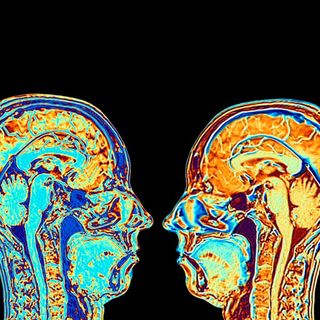Excess usage of screen-based media like TV, mobile phones and tablets can cause structural differences in the brains of preschool-aged children, according to new research published in JAMA Pediatrics.
Screen time exceeding the amount recommendedby the American Academy of Pediatrics leads to lower structural integrity in sections of white matter that support language anddevelopingreading and writing skills, researchers found. Currently, the recommendations for screen time are:
- Only occasional video calls for children younger than 18 months
- Parents should watch high-quality programming with kids aged 18 to 24 months in order to help them understand what they’re seeing
- One hour a day of screen time for children aged 2 to 5 years, and parental co-viewing.
“Screen-based media use is prevalent and increasing in-home, childcare and school settings at even younger ages,” Dr. John Hutton, lead author and director of the Reading & Literacy Discovery Center at Cincinnati Children’s Hospital, said in a statement. “These findings highlight the need to understand effects of screen time on the brain, particularly during stages of dynamic brain development in early childhood, so that providers, policymakers and parents can set healthy limits.”
Related on The Swaddle:
Screen Time Begets Screen Time, Researchers Say
Around 50 preschool-aged children, which is anywhere between 3 to 5 years old, took cognitive tests and underwent MRIs to help provide estimates of white matter integrity in their brains. Parents of these children took the ScreenQ test, which measures screen-based media use in children via incorporating factors like access to screens, frequency, and context of use, the content of media seen and co-viewing with older caregivers.
Researchers found that more screen time was associated with less expressive language, an inability to rapidly name objects (brain processing speed), and less-developed literacy skills. They also found less brain white matter integrity in children who spent more time in front of a screen, which slows nerve impulses in the areas associated with executive function and literacy skills.
“This study raises questions as to whether at least some aspects of screen-based media use in early childhood may provide sub-optimal stimulation during this rapid, formative state of brain development,” Dr. Hutton said.
He added, “While we can’t yet determine whether screen time causes these structural changes or implies long-term neurodevelopmental risks, these findings warrant further study to understand what they mean and how to set appropriate limits on technology use.”




